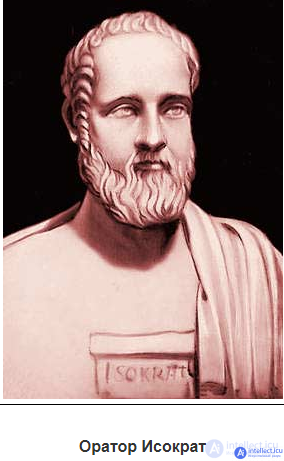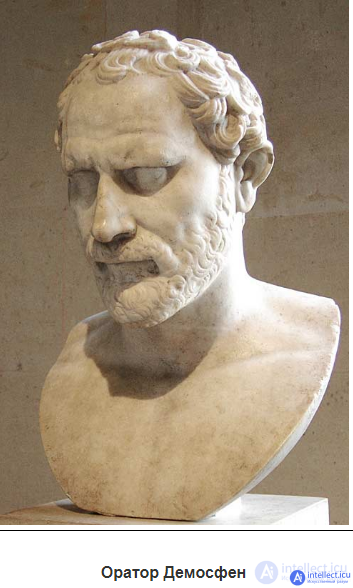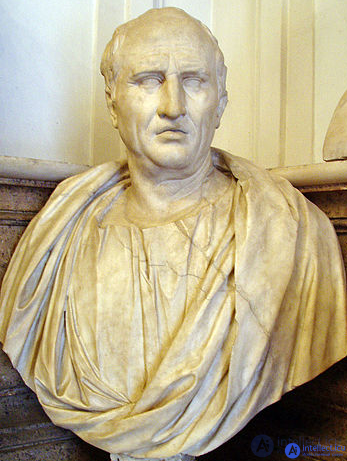Lecture
The most vivid manifestations of these authors are associated with the most acute political trials that have fallen to the lot of their generations.
Isocrates and Demosthenes were political opponents on the issue of reorganizing the polis life. Isocrates, as a representative of the aristocracy, demanded a revival of the unity of the ancient Greek policies under the auspices of the Macedonian king Philip. Demosthenes devoted his most significant “8 speeches” to the prevention and confrontation of threats from Phillip. These speeches of Demosthenes in antiquity were called philippics. The main idea of these speeches is to gather strength to repel Macedonian aggression, to protect the independence of the democratic fatherland.


Another one of the authoritative rhetoricians of antiquity, historians of the Journalism called Isocrates. Unlike Demosthenes, he was a supporter of the unification of Greek lands under the auspices of the Macedonian king Philip. Isocrates was not so much an orator, sk. rhetoric. He believes that knowledge of the basics of eloquence is necessary for every citizen, but by each he understood, first of all, aristocracy. He organized an eloquence school, the training of which was very expensive. The rhetorical texts of Isocrates. First of all, Panegyric indicates that he understood rhetoric not only as art, but also as a socially significant phenomenon. Thus, he brings rhetoric closer to journalism. Isocrates said that eloquence should serve the state. That not so much the form as the content is important for the speech to be truly perceived as the author wants it. Isocrates is called the first publicist of antiquity, whose work has sufficiently fully reached us: 21 speeches and 9 letters.
Despite the emphasis of Isocrates on the content, his speeches are built on rhetorical standards and are based on the methods of oral eloquence. They imitate the situation of the speaker’s direct appeal to the popular assembly.
The speeches of both Demosthenes and Isocrates were recorded and distributed in Athens. Isocrates deliberately distributed his speeches among his students. In their work you can find the origins of future journalistic genres - a treatise, article, pamphlet, open letter, appeal, etc.
Cicero
One of the most prominent followers of the school of ancient Greek eloquence was the ancient Roman politician Cicero. Its often compared. with Demosthenes, and this is no accident, because Cicero himself pointed to continuity. Cicero is one of the rarest cases of combining a speaker and a rhetorician in one person. He wrote several treatises on the art of eloquence and took an active part in the political struggle of his time and became famous as a magnificent speaker.

Cicero left the horseman class. His parents, who dreamed of a son’s career, sent him to the capital, where Cicero got connections with influential people, among whom were masters of eloquence. In Rome, the path to the political Olympus ran through high-profile court cases, and Cicero began with law practice. Later in his treatise Orator, Cicero will describe the tricks he used in his speeches. There was no equal to Cicero in the use of amplification - inflation, exaggeration. He used the listing. His speeches are always highly emotional, especially in the final part.
Comments
To leave a comment
Journalism History
Terms: Journalism History